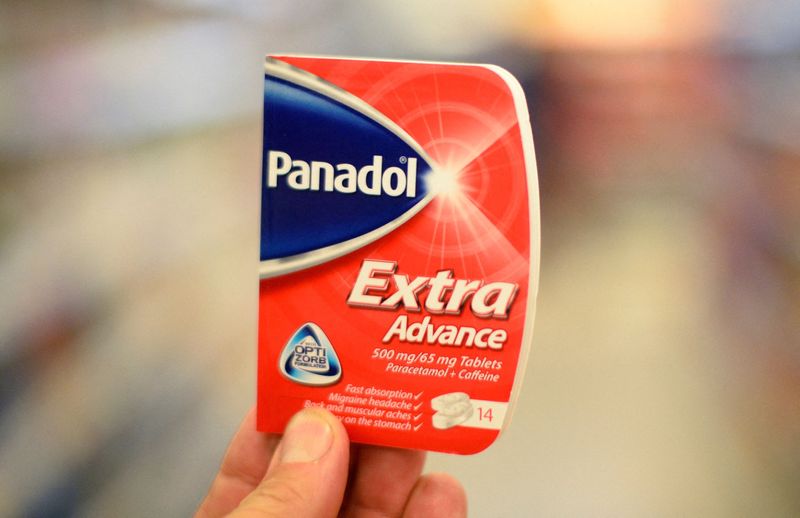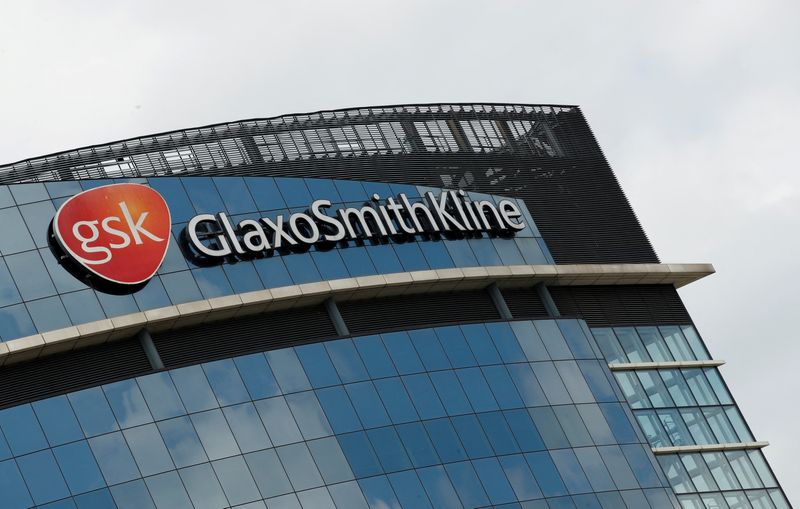By Siddharth Cavale, Ludwig Burger and Mrinmay Dey
(Reuters) -GlaxoSmithKline on Saturday said it had rejected a 50-billion-pound offer from Unilever (LON:ULVR) for its consumer goods arm, saying it "fundamentally undervalued" the business and its future prospects and that it would stick to its plan of spinning off the unit.
Unilever confirmed the approach earlier on Saturday, saying the Glaxo unit would be a "strong strategic fit" as it continues to re-shape its portfolio spanning food, beauty and home care brands.
A deal of this size would be the biggest globally since the start of the pandemic, if it goes through. It could also transform Unilever into a formidable beauty and personal care purveyor, taking on the likes of Estee Lauder (NYSE:EL) and L'Oreal, while for GSK, it could bring much needed relief from investor pressure that has been building over the past year.
GSK said it had received three bids from Unilever, the latest on Dec. 20 comprising 41.7 billion pounds in cash and 8.3 billion pounds in Unilever shares, which failed to reflect the intrinsic value of the business and its potential.
"The Board of GSK therefore remains focused on executing its proposed demerger of the Consumer Healthcare business ... on track to be achieved in mid-2022," the statement said, adding that it was confident the business would beat global market growth rates in the medium term.
The group's consumer goods business is due to be spun out into a separate listing in the middle of this year.
Earlier, Britain's Sunday Times said the Unilever bid for the business made late last year was worth roughly 50 billion pounds, and had been rejected as too low by GSK and Pfizer (NYSE:PFE), which owns a minority stake in the division.
The approach by Unilever, which owns brands such as Dove soap and Marmite, for Glaxo's portfolio of household brands including Panadol painkillers and Sensodyne toothpaste was understood to have been unsolicited, the report added.
The bid did not include any takeover premium or recognition of synergies, the newspaper said, adding that it was not clear whether the group would make a higher offer.
Dave Lewis, who is due to head GSK's consumer health unit, declined to comment on the approach. The former boss of UK grocer Tesco (LON:TSCO) said the matter was for GSK's board.
Unilever declined to comment on whether it would return with a higher bid. "There can be no certainty that any agreement will be reached." Brokerage Jefferies last year put a valuation for the whole consumer unit at 45 billion pounds.
If a deal goes through, GSK's consumer health unit's brands would likely be incorporated into Unilever's Beauty and Personal Care business, its biggest by sales.
Performance in the unit, which sells Dove, Lifebuoy, Axe and Vaseline, has been tepid during the pandemic as fewer people venture out or attend social occasions, while higher costs of plastics and petrochemicals have also dented margins.
In its most recent quarter, Beauty and Personal care volumes fell 1.3% while prices rose 3.9%.
INVESTOR PRESSURE
Unilever's Chief Executive Alan Jope is under pressure to turn around its languishing stock price as it struggles to compete in the face of high inflationary costs, especially in emerging markets, its biggest source of revenue.
The FTSE-listed conglomerate's stock has fallen 10% over the past year compared with P&G's 18% rise and Reckitt's 1.4% decline, despite a pandemic-driven boost in shopping for groceries and household goods that has benefited all three companies.
British fund manager Terry Smith, whose Fundsmith vehicle is a top-10 Unilever investor, this week criticized the group for promoting sustainability credentials at the expense of performance.
Since taking over from Paul Polman as CEO in 2019, Jope has laid out a vision for Unilever called "brands with purpose", a socially conscious strategy that would see the company focus investments and marketing on brands that "communicate a strong environmental or social purpose" even at the cost of profit.
"A company which feels it has to define the purpose of Hellmann’s mayonnaise has in our view clearly lost the plot. The Hellmann’s brand has existed since 1913 so we would guess that by now consumers have figured out its purpose (spoiler alert — salads and sandwiches)," Smith said.
Smith was not immediately available to comment.
Jope, however, has kept to his promise of streamlining the company. The company sold a majority of its Tea business, including Pukka Tea and PGTips to CVC Capital partners for $5 billion late last year and has been looking to offload a portfolio of slow growing beauty brands.
Investor activism has also reared its head at GSK.
In April last year, U.S. activist hedge fund Elliott Management revealed a multi-billion pound stake in GSK, putting pressure on CEO Emma Walmsley to explore a shake-up of the company after it fell behind in the COVID-19 vaccine race.
Fledgling activist investor Bluebell Capital Partners, fresh off its success in ousting the CEO of Danone last year, also took a stake in GSK in September, making demands including asking Walmsley to re-apply for her job, citing a lack of scientific expertise.
BIG DEAL FOR JOPE
For Unilever, the deal would be the biggest move for Jope since becoming CEO in 2019.
He has previously shot down suggestions that Unilever was in the market for big deals, saying instead that the company would focus on smaller acquisitions in fast-growing areas such as luxury beauty, plant-based foods and health and wellness.
If a deal with GSK does go through, it will be Unilever's second with the company after it bought its health food drinks business, including Horlicks, in India and other Asian markets for 3.3 billion euros in 2018.
The consumer remedies industry, which has traditionally been attached to the prescription drug sector, is also in a phase of major transformation as several pharma companies no longer see a benefit in a combination.

Johnson & Johnson (NYSE:JNJ) in November unveiled plans to spin off its consumer health division, owner of the Listerine and Baby Powder brands, to focus on pharmaceuticals and medical devices. Sanofi (PA:SASY) has said its consumer unit would become “standalone” business.
($1 = 0.7314 pounds)
